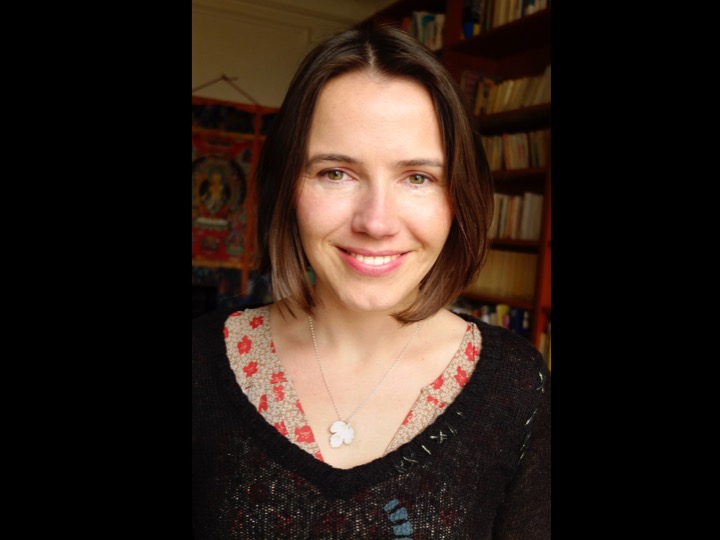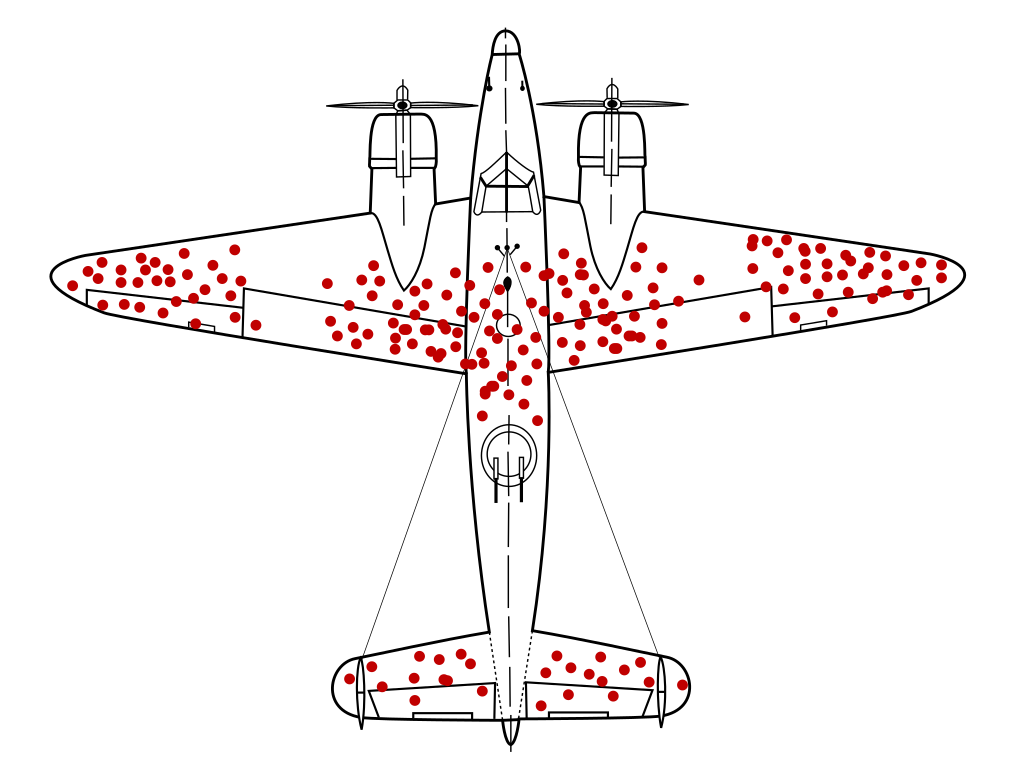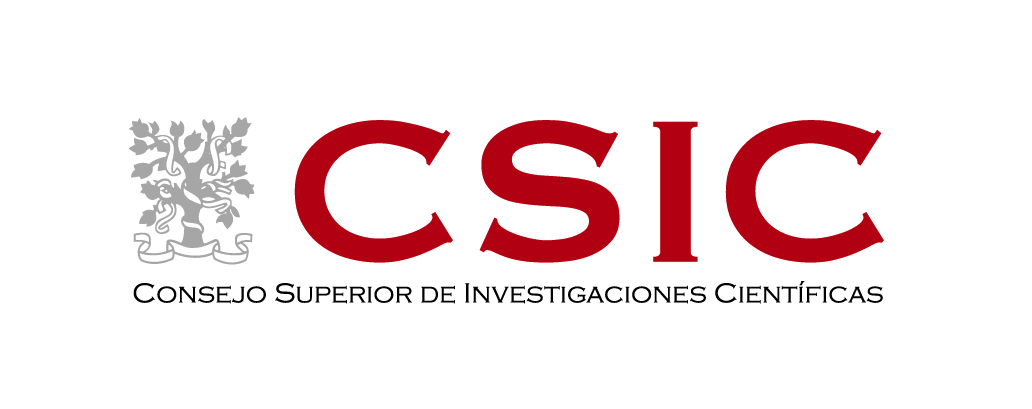Aoife McLysaght (Trinity College of Dublin): "Being surrounded by supportive people is key to develop a career in science"
Aoife McLysaght (Trinity College of Dublin): "Being surrounded by supportive people is key to develop a career in science"
Aoife McLysaght (Trinity College of Dublin): "Being surrounded by supportive people is key to develop a career in science"
We interview Researcher Aoife McLysaght with the occasion of her visit to the Institute of Evolutionary Biology (IBE) to give the seminar "Dosage constraints and the evolution of gene copy number and expression".

I like very much a quote of yours saying "genetics is not a field of study, it's a way of looking at the world." Could you please tell us more about that point of view?
I think it comes back from my education in Trinity College. We have always seen genetics as a very diverse discipline were you could study many things from a particular perspective. It can be also applied to evolutionary genetics: evolution is often described as the unifying principle that links everything in biology. When you are studying something here it may have relevance there because of their common evolutionary origins, and then genetics is kind of the language of that commonality.
And I can actually relate this perspective to my personal view of the world. I actually feel a very strong connection with every other human being - we are all just recent cousins! - but also with every other living thing. It does kind of blow my mind when you thing of some highly conserved genes, like the histone H4. When you compare the human version to the wheat one you see that they only differ in 3 amino acids. This means that basically your sandwich has the same genes as you! It is just crazy how connected all living things actually are.
"Evolution is the unifying principle of all biology: when you are studying something here it may have relevance there because of their common evolutionary origins, and then genetics is kind of the language of that commonality."
 About your specific field of research, could you explain which is your driving scientific question?
About your specific field of research, could you explain which is your driving scientific question?
One of the things we try to understand is the impact and consequences of the variations that can happen in the genome. Everybody knows that you can get mutations in the DNA sequence that could have an effect in function. However, we got interested in the importance of having an extra bit of a sequence - having duplications. We see that this is a common phenomenon, and one can find whole genome duplications that made it through evolution, as well as single gene duplications, in all kind of living organisms.
Duplication is actually a really powerful shortcut to getting new genes, because a gene in itself is so complicated, and evolving all of that from scratch is difficult. So the fastest way of getting new genetic material is by copying an old gene and then letting it evolve.
I was especially interested in the idea that sometimes having more copies of a perfectly normal and "good" gene can lead to a negative effect.
So we started looking at evolution, seeking for the pattern of change in gene sequences behind these duplications. There’s a little story that I can use to illustrate this principle, it comes from World War II.
We are looking at the importance of gene duplication through evolution. Sometimes having more copies of a perfectly normal and "good" gene can lead to a negative effect.
Please, go on!
 There was this mathematician Abraham Wald. During the World War II, he was asked to analyse patterns of bullet holes on planes that were returning from battle, in order to reinforce them so that later planes would be stronger.
There was this mathematician Abraham Wald. During the World War II, he was asked to analyse patterns of bullet holes on planes that were returning from battle, in order to reinforce them so that later planes would be stronger.
However, he flipped the whole logic of it. Wald noticed that planes that travel back home are the ones that manage to fly despite the damage, as the bullets didn't stop their flight. In fact actually what you want to do is to look at all the planes that come back home and see where you never see a bullet hole, because these point at the planes that were shot down.
That same principle can be used for genes. You have parts of a gene where you see a lot of change across animals through evolution, and then parts where there is never a change. And it's not because it never happened, but because it didn't survive in an evolutionary sense. So when we see a part of a gene that is highly conserved, even looking at lots of different animals, that tells you that this shared unchanged part may be truly important for its correct function. And the same applies to gene duplication. We have seen that, for some genes, we hardly ever see a change in their number of duplications through evolution, as it would lead to malfunction. We call them dosage sensitive genes.
When we see a part of a gene that is highly conserved across animals, this tells you that this common unchanged part may be truly important for its correct function. And the same applies to gene duplication: for some genes, we hardly ever see a change in their number of duplications through evolution, as it would lead to malfunction. We call them dosage sensitive genes. We call them dosage sensitive genes.
That's really interesting. Could you give one example of these gene duplications having an effect in health or disease?
There are plenty of them, but there is this very well known example of Down syndrome, which is caused by an extra copy of chromosome 21. When we looked at chromosome 21, we found out that its genes had the smallest number of dosage sensitive evolutionary patterns.
So for example, an individual with a duplicated chromosome 1 would be unbearable, as it carries lots of these dosage sensitive genes and it would lead to a non-viable organism. But duplicating chromosome 21 has the mildest effects among all the possible chromosome duplications in humans, and this is why it is the most frequent.
I am trying to figure out how is your day-to-day work. Could you tell us about your research team?
At the lab we are mostly biologists, but we do computational work. Now we also have a wet lab scientist, as we are going to test some of our ideas in model organisms. Basically, we generate and work with large amounts of data, and we run lots of statistical analysis to recognize patterns in evolution through genes.
About your personal perspective, you are a young leader in your field of expertise. But, how has it been for you to reach your position?
My personal experience has been pretty good. I am still here so, in a way, I am fortunate enough to be one of the "planes that returned".
 Were you back with bullets in the wings, though?
Were you back with bullets in the wings, though?
Well, in fact I was fortunate enough to be surrounded by very supportive people at various important stages of my career.
My PhD supervisor was really encouraging, and he was always a nice person to talk to. However, there were other people at the time that were trying to put me under pressure. I remember this interaction with a professor who basically questioned if I should or not be taking a holiday during my PhD. For some people, a good scientist must be exclusively committed to science. However, at this stage I don't see it as only wrong, but also as a bad and exploitative attitude.
Later when I went for a postdoc in California I also had a very supportive and encouraging boss. You know, in my experience people that have a great personality apart from being great scientists actually make a big difference. In fact, I am still really good friends with my postdoc supervisor! So I believe that I got lucky on that. Some people are not, and they can end up working for people like the one researcher I had the argument with.
Apart from that, I was lucky to get a job at the city where I wanted to live, and to get grants.
"I was fortunate enough to be surrounded by very supportive people at various important stages of my career. In my experience people that have a great personality apart from being great scientists actually make a big difference."
So what is your approach now that you lead your own team and research?
I try to make things easier for other people. I try to create a supportive environment not only in my lab, but also in my department as well. I also have kind of a philosophy in life: I like to leave things better than when I found them. Just because I survived in this harsh environment doesn’t mean that the process is perfect. It could be improved in many different ways!
For the last couple of years I have been involved in the Athena SWAN initiative which is mainly about promoting gender equality in academia. It started like a prize or accreditation, but soon in Ireland getting this kind of accreditation will be compulsory to apply for grants.
I try to create a supportive environment not only in my lab, but also in my department as well. I also have kind of a philosophy in life: I like to leave things better than when I found them.
Regarding young students. What would you say to young people having doubts about starting a career in science?
The advice I live by is that you do what you enjoy. So I never try to persuade anybody to do science. However, if they want to do science, I think that they should not feel put off at all.
You should try to do what you are interested in, because that's what is going to make you happy and that's where you are going to really make a contribution. Some time ago, I was told about a test to gauge your motivation towards a discipline. It's called the gossip test.
That sounds interesting! Could you tell us further about the gossip test?
Sure! So it basically consists of identifying what is the stuff you like to talk about to your friends and family. Which are the things that truly amuse you? What kind of ideas make you feel like talking about them?
The advice I live by is that you do what you enjoy, because that's what is going to make you happy and that's where you are going to really make a contribution.
So it's like looking for your inner motivations, your driving force.
Yeah! Absolutely. Actually I had this one student once in my lab - the one who told me about the test! She was already doing science, but she switched from a medical project to an evolution project with me because she realized that she was always talking about evolution stuff, despite her training. After her MSc with me she started a PhD working in virus evolution and during the coronavirus crisis she seconded to working with the UK COVID surveillance project, a particularly vibrant area. And it all just started with the gossip test!
That's a beautiful experience to wrap up this conversation! Thanks a lot for your time Aoife.
My pleasure! Keep in touch.
Aoife McLysaght was talking to Pilar Rodríguez, Communication Manager at IBE.
About Aoife McLysaght
Short bio
Professor Aoife McLysaght did a degree in science in Trinity College Dublin and specialised in genetics doing a PhD on the evolution of vertebrate genome organisation in 2002. Afterwards she moved to the University of California, Irvine, for a postdoc, where she spent almost 2 years. Since 2003, McLysaght is Principal Investigator in the Molecular Evolutionary Laboratory and Lecturer in Genetics in Trinity College Dublin. She has been recognised as a young leader in her field through the granting of major, prestigious research grants, appointment to editorial roles in high-impact journals, invitations to speak at major international conferences and organisation of international meetings.
She was a member of the international consortium that published the first draft of the Human Genome sequence in 2001 and the first to discover novel human-specific genes, in 2009. McLysaght also takes a keen interest in communicating science to the general public in an engaging and accessible manner.
Research interests
McLysaght leads the Molecular Evolutionary Laboratory in Trinity College Dublin. Over the years, the group has made many significant contributions to the understanding of the human genome, as well as the genomes of other animals, plants and viruses.
With the collaboration of the Spanish Foundation for Science and Technology - Ministry of Science and Innovation.


